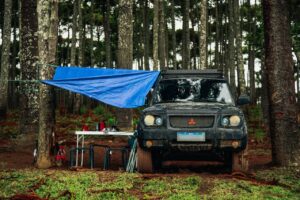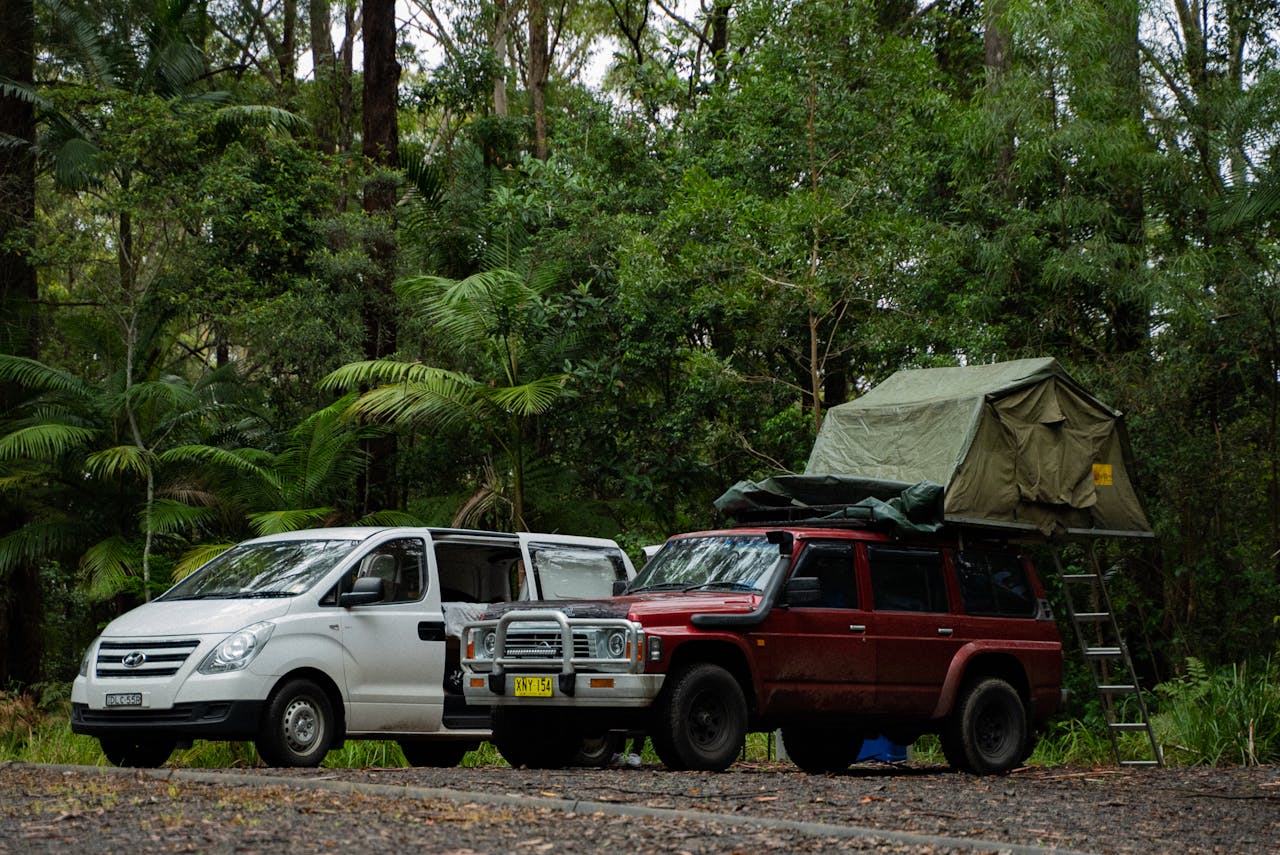
How to Prepare for Car Camping
Preparing for car camping involves researching safe car camping sites, packing car camping essentials, and having the right vehicle.
Car camping can save money and hassle while allowing you to travel and make great memories. Here are the best car camping tips for Australia for a memorable, enjoyable experience
Things That You Need for Car Camping
3 basic things you’ll need for car camping:
- A Vehicle: This one is obvious, but some vehicles are better for car camping than others. Ideally, a sports utility vehicle (SUV) with back seats that fold down and ample boot space is a great car camping vehicle. Opt for all-wheel or four-wheel drive if you plan to go off-roading
- Car Camping Gear: Car camping requires certain essentials and items that need to be purchased ahead of time. We cover a list of the best car camping essentials later in our guide.
- Proper Planning: Car camping requires a good deal of research before you ever leave your driveway. We recommend planning your route, an alternate route, safe car camping sites, and the gear you’ll bring. We also recommend deciding which part of your car you plan to sleep in.
Where to Car Camp
It can be difficult to find safe, legal places to park a car overnight in WA for car camping. We recommend researching car camping sites ahead of time so you have safe areas lined up before your trip.
Here are some car camping places to consider:
- Beaches: Beaches are one of the first car camping sites many people think of. However, it is illegal to park overnight at numerous beaches. Always research rules and regulations ahead of time. Check for posted signs or inquire ahead of time about overnight car beach camping.
- Truck Stops or Service Centres: Truck stops and service centres can often be found along major highways. These centres can make good car camping sites as they usually have good lighting, a petrol station, public toilets, and a restaurant or two.
- Paid Caravan Parks and National Parks: With hundreds of Australian National Parks, this is a great option to consider. Research rules and fees before you go. Paid caravan parks are another car camping option.
- Highway or Motorway Rest Stops: Highway rest areas can be a suitable area for overnight car camping. There are usually well-lit areas and access to restrooms. However, rest stops can be on the noisier side.
- Free Camping Sites: Some areas in Australia offer free camping sites if you do some research beforehand.
You May Also Like: 8 Tips to Prepare Your Car for Long Distance Driving in Australia
Car Camping Set Up
Here are some car camping essentials to set you up for a fun, successful trip:
- Sleep essentials, such as a sleeping pad or car mattress, pillows, blankets, sheets, a sleeping bag, earplugs, sleep mask
- Camping or folding chairs
- Cooler
- Portable charger
- A basic first aid kit with bandages, antibacterial ointment,
- Camping stove
- Bug spray & sunscreen
- Toiletries and personal care items, such as a toothbrush, toothpaste, wipes, hand sanitiser
- Microfiber towel
- WAG bags or a small shovel if you will not have access to bathroom facilities
- Weather-appropriate clothing, such as a poncho, a wide-brimmed hat, a rain jacket, a warm jacket, and good walking shoes
- Entertainment like audiobooks, paperback books, or a deck of cards
- Cooking items, if needed, such as a camping stove, skillet, knife, chopping board, utensils, and a cooler
- Extra water and plenty of car-friendly snacks (trail mix, dried fruit, bananas, apples, granola bars, nuts, etc.)
- Lighting, such as headlamps, lanterns, or flashlights
For more tips on essential road trip items, read our post here: 15 Must-Have Road Trip Accessories.
Tips for Car Camping
Here are some of our favourite tips for the best car camping experience:
- Research pet-friendly car camping sites ahead of time if you are travelling with your furry loved one. Also, remember your pet’s food and water bowls and bedding.
- Purchase a campsite information app, such as WikiCamp, to get information on free and paid campsites to research car camping options
- Always notify a friend or loved one of your travel and car camping plans so they know your location.
- Invest in window shades or coverings to help with bugs and privacy.
- Prioritise car camping sites with good lighting and safety
- Double-check for any “no camping” or “no overnight parking” signs before settling in
- Park near lights for safety but not directly under them to avoid disrupting your sleep
- Always have a backup car camping site planned in the event of poor weather, safety concerns, or lack of available space
- Do a test run before leaving on your car camping trip to make sure all of your gear fits inside your vehicle while leaving you ample room to sleep
- Download music, audiobooks, or maps ahead of time to ensure you maintain access to them even if you lose service
- Have your vehicle serviced before a road trip
Get Your Car Camping Ready with Shevron
Ready to get planning your car camping adventure in WA? Contact us for personalised product advice to help get your vehicle outfitted. We carry a range of car accessories dedicated to increasing your car’s comfort and function.
